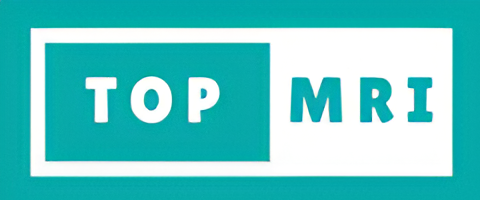
- Home
- Services
- Locations
- MRI Scan
- Greater London Area
- London – Marylebone, W1G 7HE – 3.0 T MRI Scan – £300
- London – Harley Street, W1U 2HX – Open MRI Scan – £500
- Middlesex – Enfield, EN2 8JL – 1.5 T MRI Scan – £300
- West Middlesex – Isleworth, TW7 6AF – 1.5 T MRI Scan – £300
- Surrey – Epsom, KT18 7LX – 1.5 T MRI Scan – £300
- Surrey – Ashford, TW13 3AA – 1.5 T MRI Scan – £300
- Surrey – Guildford, GU2 7XU – 3.0 T MRI Scan – £300
- Kent – Sidcup, Bexley, DA14 6LT – 1.5 T MRI Scan – £300
- North West England
- Manchester – M80 4AN – Open MRI Scan – £500
- Greater Manchester – Manchester, SK8 7NB – 1.5 T MRI Scan – £279
- Greater Manchester – Whythenshaw, M23 9LT – 3.0 T MRI Scan – £300
- Greater Manchester – Stockport, SK2 7JE – 1.5 T MRI Scan – £300
- Cumbria – Cockermouth, CA13 9HT – 1.5 T MRI Scan – £279
- Cumbria – Penrith, CA11 0AH – 1.5 T MRI Scan – £279
- Lancashire – Preston, PR4 0AP – 1.5 T MRI Scan – £279
- Lancashire – Fylde, FY8 1PF – 1.5 T MRI – £300
- North East England
- East Midlands
- East of England
- West Midlands
- South West England
- South East England
- Wales
- Yorkshire and the Humber
- Greater London Area
- CT Scan
- Full Body MRI Scan
- Ultrasound
- MRI Scan
- Patients
- Referrers
- Prices
- 0333 344 1811
info@topmri.com
Gallbladder Cancer
- Uncategorized
-
Sep 17
- Share post
Gallbladder Cancer: Symptoms, Causes, Diagnosis, Treatment, and Future Outlook.
Disclaimer:
This blog is for informational purposes only and should not be taken as medical advice. Content is sourced from third parties, and we do not guarantee accuracy or accept any liability for its use. Always consult a qualified healthcare professional for medical guidance.
What is Gallbladder Cancer?
Gallbladder cancer is a rare malignancy originating in the gallbladder, mostly adenocarcinoma (90%), with squamous/adenosquamous types rare. It’s often advanced at diagnosis due to vagueness, with stages I-IV. In 2025, ~12,610 US cases (including bile duct), more in women, median age 65.
Symptoms
Symptoms include right upper abdominal pain, jaundice, itching, bloating, fever, nausea, weight loss, and lump. Early asymptomatic, found incidentally during cholecystectomy. Advanced causes ascites or bowel obstruction.
Causes
Risk factors include gallstones (70-90%), chronic inflammation (cholecystitis), porcelain gallbladder, obesity, diabetes, typhoid carrier, and family history. Mutations in TP53, KRAS. In 2025, microbiome and genetics are focused.
Diagnosis
Diagnosis uses ultrasound (initial), CT/MRI for staging, ERCP/PTC for biopsy, and tumor markers (CA19-9, CEA). Laparoscopy stages. In 2025, AI imaging improves early detection.
Treatment
Resectable (stages I-II) uses cholecystectomy with liver resection/lymphadenectomy. Advanced uses chemo (gemcitabine + cisplatin), targeted (IDH inhibitors), immunotherapy. In 2025, HER2-targeted show promise.
Future Outlook
In 2025, 5-year survival is 65% for localised, 5% for distant. Precision therapies extend advanced survival to 12 months. By 2030, biomarkers could improve to 20% for advanced.
Sources
The information for gallbladder cancer is sourced from Cleveland Clinic’s “Gallbladder Cancer: Symptoms, Treatment & Prognosis” for treatment; Mayo Clinic’s “Gallbladder cancer – Symptoms and causes” for causes; Cancer Therapy Advisor’s “Gallbladder Cancer | Diagnosis & Disease Information” for diagnosis; MD Anderson’s “Gallbladder cancer: 9 facts about symptoms, diagnosis and treatment” for facts; PMC’s “Prognostic Factors and Treatment Outcomes in Gallbladder Cancer” for outcomes; World Journal of Gastrointestinal Oncology’s “Advances in diagnosis and treatment of gallbladder cancer” for updates; UCSF’s “Gallbladder Cancer” for symptoms; NCBI’s “Gallbladder Carcinoma – StatPearls” for symptoms; Cancer Center’s “Gallbladder Cancer: Causes, Symptoms & Treatments” for statistics; NCI’s “Gallbladder Cancer Treatment” for treatment.